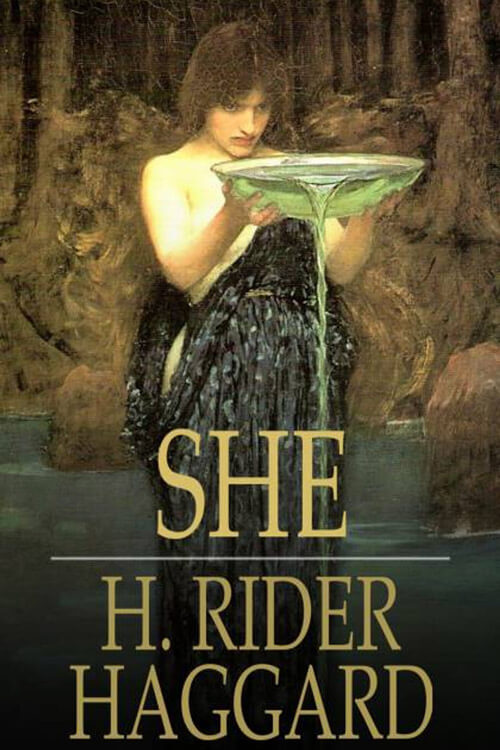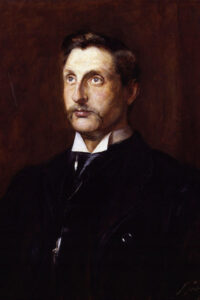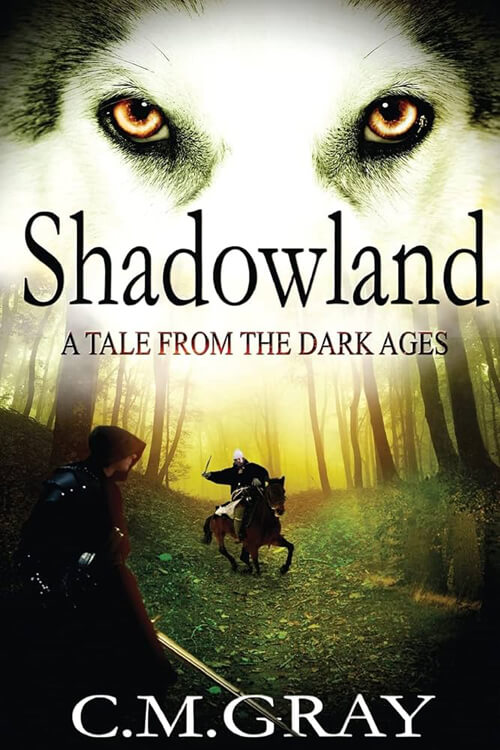
She
In giving the world the record of what is looked at as an adventure only is, I suppose, one of the most beautiful and mysterious experiences ever undergone by mortal men, I feel it incumbent on me to explain my exact connection with it. And so I may as well say at once that I am not the narrator but only the editor of this extraordinary history and then go on to tell how it found its way into my hands.
Some years ago I, the editor, was stopping with a friend, “vir doctissimus et amicus neus,” at a particular University, which for this history we will call Cambridge, and was one day much struck with the appearance of two persons whom I saw going arm-in-arm down the street. I think one of these gentlemen was, without exception, the most handsome young fellow I have ever seen. He was tall, broad, and had a look of power and a grace of bearing that seemed as native to him as it is to a wild stag. In addition, his face was almost without flaw—a good face as well as a beautiful one, and when he lifted his hat, which he did just then to a passing lady, I saw that his head was covered with little golden curls growing close to the scalp.
“Good gracious!” I told my friend, with whom I was walking, “Why, that fellow looks like a statue of Apollo come to life. What a splendid man he is!”
“Yes,” he answered, “he is the most handsome man at the university and one of the nicest too. They call him ‘the Greek god’; but look at the other one, he’s Vincey’s (that’s the god’s name) guardian, and supposed to be full of information. They call him ‘Charon.’” I looked and found the older man quite as interesting in his way as the glorified specimen of humanity at his side. He appeared to be about forty years of age and was I think as ugly as his companion was handsome. To begin with, he was shortish, rather bow-legged, very deep-chested, and had unusually long arms. He had dark hair and small eyes, which grew right down on his forehead, and his whiskers grew right up to his hair so that uncommonly little of his countenance could be seen. He reminded me forcibly of a gorilla, yet there was something very pleasing and genial about the man’s eye. I remember saying that I would like to know him.
“All right,” answered my friend, “nothing easier. I know Vincey; I’ll introduce you,” and he did, and for some minutes, we stood chatting—about the Zulu people, I think, for I had just returned from the Cape at the time. Presently, however, a stoutish lady, whose name I do not remember, came along the pavement, accompanied by a pretty fair-haired girl, and these two Mr. Vincey, who knew them well, at once joined, walking off in their company.
Read or download Book
H. Rider Haggard
Sir Henry Rider Haggard KBE (22 June 1856 – 14 May 1925) was an English writer of adventure fiction romances set in exotic locations, predominantly Africa. He was a pioneer of the lost world literary genre and was also involved in land reform throughout the British Empire. His stories, situated at the lighter end of Victorian literature, remain famous and influential.
Life and career
Family
Henry Rider Haggard, generally known as H. Rider Haggard or Rider Haggard, was born at Bradenham, Norfolk, the eighth of ten children, to William Meybohm Rider Haggard, a barrister, and Ella Doveton, an author and poet. His father was born in Saint Petersburg, Russia, in 1817 to British parents. A member of the Haggard family, he was the great-nephew of the ecclesiastical lawyer John Haggard, an uncle of the naval officer Admiral Sir Vernon Haggard and the diplomat Sir Godfrey Haggard.
Education
Haggard was initially sent to Garsington Rectory in Oxfordshire to study under Reverend H. J. Graham. Still, unlike his elder brothers, who graduated from various private schools, he attended Ipswich Grammar School. This was because his father, who perhaps regarded him as somebody who would not amount to much, could no longer afford to maintain his expensive private education. After failing his army entrance exam, he was sent to a private crammer in London to prepare for the entrance exam for the British Foreign Office, where he never sat. During his two years in London, he came into contact with people interested in studying psychic phenomena.
Writing career
After returning to England in 1882, Haggard published a book on the political situation in South Africa and a handful of unsuccessful novels before writing the book for which he is most famous, King Solomon’s Mines. He accepted a 10% royalty rather than £100 for the copyright. A sequel soon followed, entitled Allan Quatermain, followed by She and its sequel Ayesha, swashbuckling adventure novels set in the context of the Scramble for Africa (although Ayesha’s action happens in Tibet). The hugely popular King Solomon’s Mines is sometimes considered the first of the Lost World genre. She is considered one of the classics of imaginative literature, and with 83 million copies sold by 1965, it is one of the best-selling books in history. He is remembered for Nada the Lily (a tale of adventure among the Zulus) and the epic Viking romance Eric Brighteyes. His novels portray many of the stereotypes associated with colonialism, yet they are unusual for the degree of sympathy with which the native populations are portrayed. Africans often play heroic roles in the novels, although the protagonists are typically European. Notable examples are the brave Zulu warrior Umslopogaas and Ignosi, the rightful king of Kukuanaland, in King Solomon’s Mines. Having developed an intense mutual friendship with the three Englishmen who helped him regain his throne, he accepts their advice and abolishes witch-hunts and arbitrary capital punishment. Three of Haggard’s novels were written in collaboration with his friend Andrew Lang, who shared his interest in the spiritual realm and paranormal phenomena.
Haggard also wrote about agricultural and social reform, partly inspired by his experiences in Africa but also based on what he saw in Europe. At the end of his life, he was a staunch opponent of Bolshevism, a position he shared with his friend Rudyard Kipling. The two had bonded upon Kipling’s arrival in London in 1889, mainly based on their shared opinions, and remained lifelong friends.






